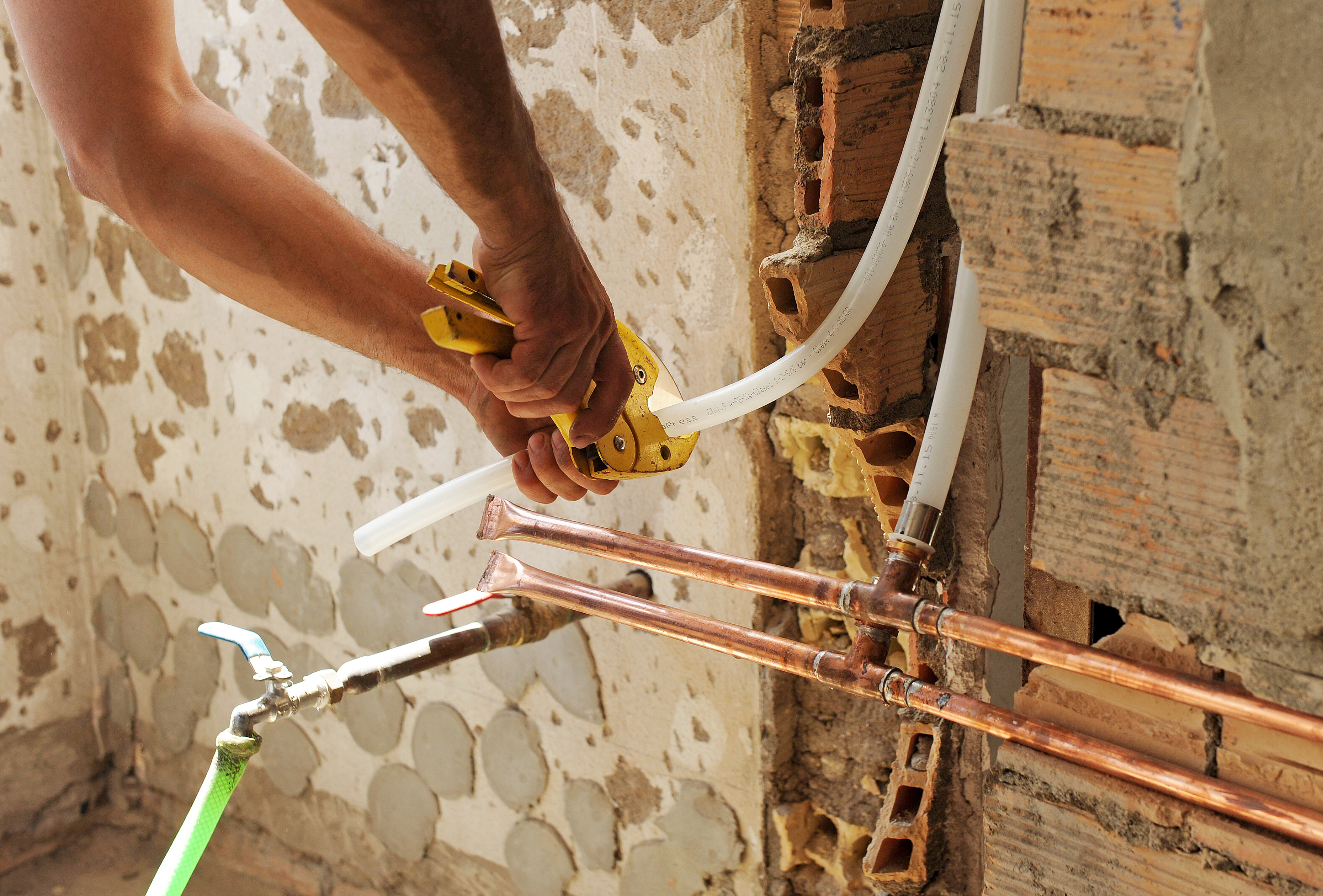Pipe in your house has water running through them every day. Every time you flush your toilet, turn the shower on or turn your faucet on to wash your hands you’re using your plumbing. Due to this constant use eventually you will need to replace your pipe. According to the US Department of Housing and Urban Development, supply pipes in a house should last around 40 years but if you develop a leak it will be time to replace these sooner. When you are replacing pipes one important question is to determine the new pipe material in your house.
Copper Pipe
Back in the day copper was the only option for plumbing, so many plumbers swear by it. It is strong but yet soft enough to bend and manipulate. Copper tubing is mostly used for the supply of hot and cold water and refrigerant lines in HVAC systems.
PVC Pipe
PVC (polyvinyl chloride) piping is more for the modern and DIY plumber. It is a durable, light-weighted and strong plastic compound. Plumbers and DIY’ers have used it for years for piping in plumbing jobs. PVC piping is used for moving drinking water, chemicals, heating fluid and cooling fluids, ultra-pure liquids, slurries, gases, compressed air and vacuum system applications.
The Differences
- One of the main differences between copper and PVC other than copper being a metal is the size. Copper is thinner than PVC which makes it more versatile in smaller spaces.
- Since PVC piping is thicker and is plastic it resists damage and corrosion better than copper.
- The installation process for copper is much more involved than PVC. A plumber would be best to install copper piping because the copper joints need to be soldered. Anyone can install PVC, since all you need is PVC cement to connect the joints together.
- Chlorinated water may cause PVC pipes to flake from the inside out, which ultimately results in the pipes failing without warning.
- PVC is much quieter than copper. Even when running water at high pressures and water speeds.
- Copper is more expensive than PVC.
- PVC piping doesn’t last as long as copper because the PVC cement can break down over time and break the joint connection.
- Copper piping can resist vibration damage better because it’s more flexible than PVC piping.
- Many people claim that copper doesn’t have as many health risks as PVC but no study has definitively proven this.
Both copper and PVC pipes have their advantages and disadvantages. They are both great options to install or re-install the plumbing in a house or a business. If you need to repipe your house it is recommended to discuss the options with our experienced plumbers to find the right solution for your specific application.





